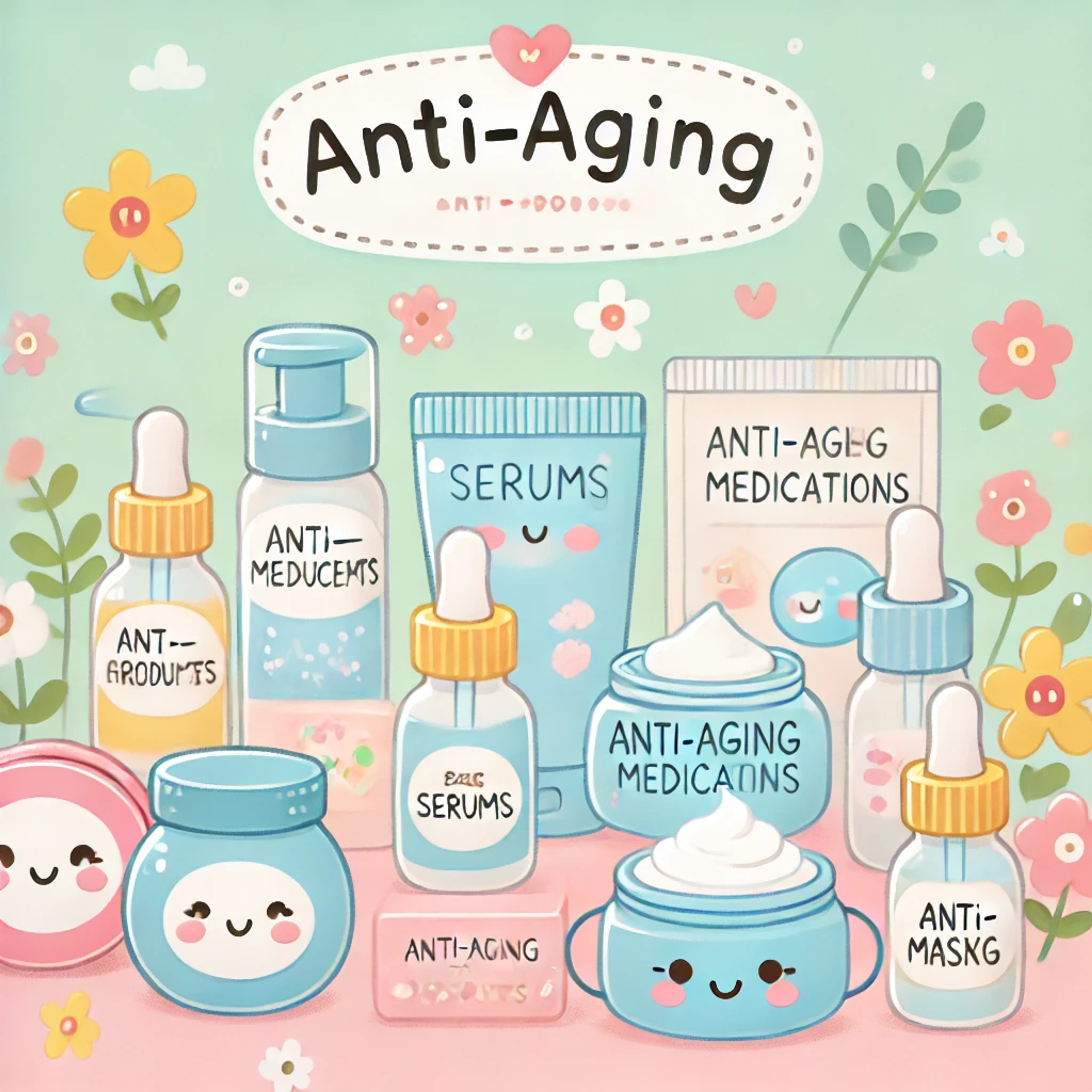7/28/2024
Comprehensive Approaches to Combat Skin Aging: Pharmaceutical, Generic, and Lifestyle Interventions

As dermatologists, we are often consulted for strategies to mitigate the signs of skin aging. Our patients seek effective solutions that span the spectrum from pharmaceutical interventions to lifestyle modifications. This blog explores evidence-based approaches to improve skin aging, focusing on the efficacy of various treatments and the importance of holistic care.
Pharmaceutical Interventions
Retinoids: Retinoids, derivatives of vitamin A, are the gold standard in anti-aging dermatology. Topical retinoids such as tretinoin and adapalene promote cell turnover, stimulate collagen production, and reduce the appearance of fine lines and hyperpigmentation. Studies have consistently demonstrated the effectiveness of retinoids in improving skin texture and reducing wrinkles (Kang et al., 2005). However, they can cause irritation and photosensitivity, necessitating gradual introduction and consistent sunscreen use.
Peptides: Peptides are short chains of amino acids that can signal skin cells to produce more collagen and elastin. Palmitoyl pentapeptide-4, a commonly used peptide in anti-aging products, has been shown to reduce wrinkle depth and improve skin elasticity (Katayama et al., 2001). Peptides are generally well-tolerated and can be an excellent addition to anti-aging regimens.
Antioxidants: Vitamin C (ascorbic acid) is a potent antioxidant that protects the skin from oxidative stress and boosts collagen synthesis. Topical application of vitamin C has been shown to improve skin texture, reduce pigmentation, and enhance skin brightness (Telang, 2013). Vitamin E and ferulic acid are often combined with vitamin C to stabilize it and enhance its photoprotective properties.
Hyaluronic Acid: Hyaluronic acid is a humectant that can hold up to 1000 times its weight in water, making it highly effective in hydrating the skin and plumping fine lines. It is a key ingredient in many moisturizers and serums and has been shown to improve skin hydration and elasticity (Papakonstantinou et al., 2012).
Generic Medications
Niacinamide: Niacinamide (vitamin B3) is an effective anti-aging ingredient that improves skin barrier function, enhances the appearance of photoaged skin, and reduces the appearance of fine lines and wrinkles. Clinical studies have shown that niacinamide can significantly improve skin elasticity, enhance the barrier function, and even out skin tone (Bissett et al., 2005).
Alpha Hydroxy Acids (AHAs): AHAs such as glycolic acid and lactic acid exfoliate the skin by dissolving the bonds between dead skin cells, promoting cell turnover. They can reduce the appearance of fine lines, improve skin texture, and help with hyperpigmentation. Regular use of AHAs has been shown to increase dermal thickness and improve skin firmness (Bernstein et al., 2001).
Lifestyle Factors
Sun Protection: Ultraviolet (UV) radiation is the primary extrinsic factor contributing to skin aging. Daily use of broad-spectrum sunscreen with an SPF of 30 or higher is crucial in preventing photoaging. Studies have shown that consistent use of sunscreen can not only prevent further damage but also allow the skin to repair and reverse some signs of aging (Hughes et al., 2013).
Healthy Diet: A diet rich in antioxidants, vitamins, and minerals supports skin health. Foods high in vitamins C and E, omega-3 fatty acids, and polyphenols can protect against oxidative stress and inflammation, promoting youthful skin. A study on dietary patterns found that higher intakes of vegetables, legumes, and olive oil were associated with fewer wrinkles and better skin elasticity (Cosgrove et al., 2007).
Hydration: Adequate hydration is essential for maintaining skin elasticity and preventing dryness. Encouraging patients to drink plenty of water and use hydrating skincare products can help maintain skin plumpness and reduce the appearance of fine lines.
Stress Management: Chronic stress can accelerate skin aging by increasing the production of cortisol, which breaks down collagen. Mindfulness practices, regular exercise, and adequate sleep are vital for reducing stress and promoting healthy skin. Research has shown that stress reduction techniques can improve skin conditions and overall skin health (Chen et al., 2014).
Conclusion
Combating skin aging requires a multifaceted approach that includes pharmaceutical interventions, generic medications, and lifestyle modifications. By integrating these strategies into patient care, we can offer comprehensive solutions that address both intrinsic and extrinsic factors of skin aging. Continued research and patient education are essential in advancing our understanding and management of skin aging.
